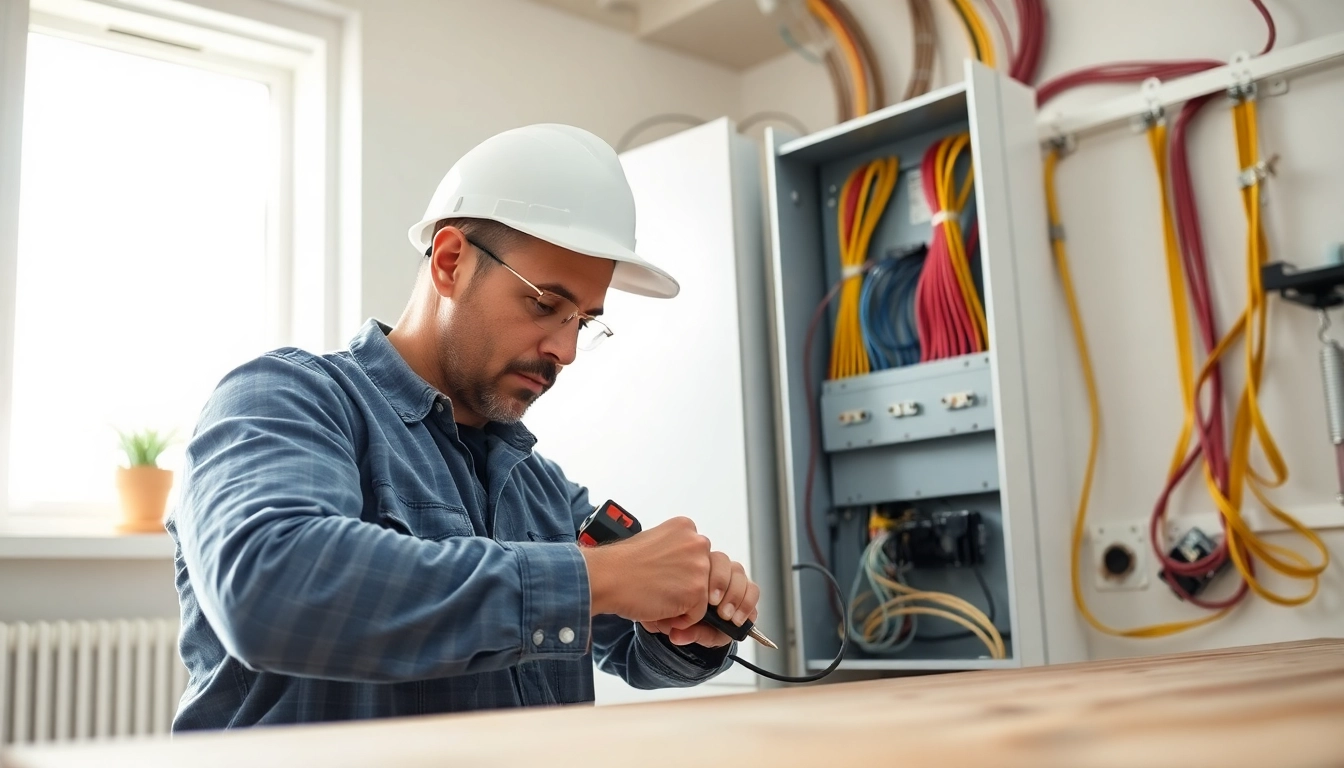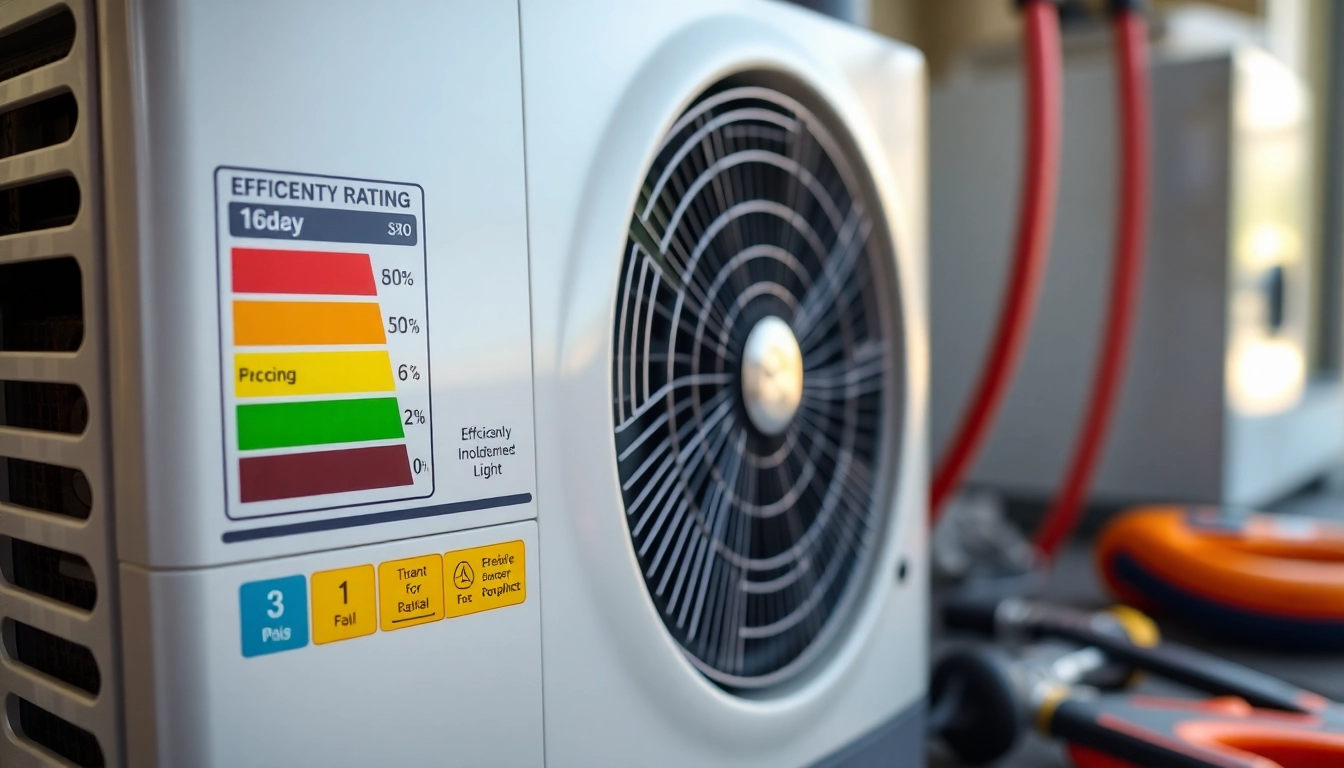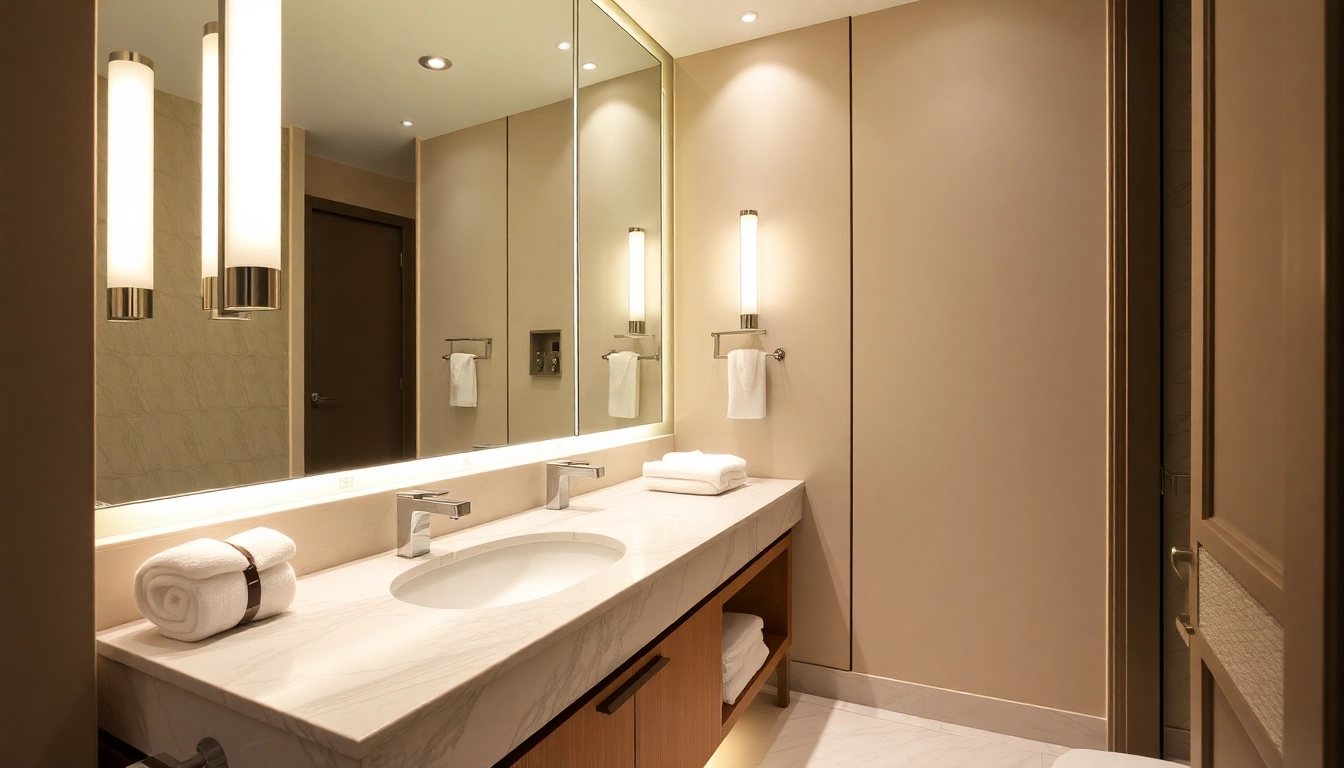Understanding the Electrical Panel
What is an Electrical Panel?
An Electrical Panel, commonly referred to as a breaker box or service panel, is a crucial component of a home’s electrical system. It acts as the central hub that receives electricity from the utility provider and distributes it throughout your home. This panel houses the circuit breakers that protect each electrical circuit in your home from overloads and short circuits. It ensures that the electricity flows safely and efficiently to various fixtures and outlets.
Core Functions of an Electrical Panel
The primary functions of an Electrical Panel include:
- Distribution of Electricity: The panel distributes electrical current to different circuits throughout the home, ensuring each area receives adequate power.
- Overcurrent Protection: Each circuit breaker in the panel is designed to trip when there is an overload or short circuit, thus protecting the wiring and appliances from damage.
- Control: Homeowners can control the power supply to specific areas or appliances by turning breakers on or off, allowing for greater energy management.
Importance of Electrical Panel Maintenance
Just like any other home system, regular maintenance of the Electrical Panel is essential for safety and efficiency. This maintenance can include routine inspections for signs of wear, rust, or damage and ensuring that all connections are tight and secure. Neglecting maintenance can lead to potential risks, including electrical fires or power outages, making it vital for homeowners to prioritize inspections, especially in older homes.
Signs You Need an Electrical Panel Upgrade
Frequent Circuit Breaker Trips
If you find that your circuit breakers are frequently tripping, this is a sign that your Electrical Panel may not be adequately serving your home’s needs. While breakers are designed to trip to protect circuits, consistent tripping indicates that the electrical load exceeds the panel’s capacity. Upgrading to a larger panel or one with more circuits can alleviate this issue.
Inadequate Power Supply for New Appliances
As you add modern appliances and devices to your home, the demands on your Electrical Panel increase. If you notice that new appliances are not operating at peak efficiency or frequently blow fuses, it’s time to assess whether your panel is able to accommodate the additional load. Upgrading the panel can provide the necessary support for high-demand appliances, ensuring their reliable operation.
Visible Damage to the Electrical Panel
Physical signs of damage, such as burn marks, rust, cracks, or a burning smell, can indicate serious issues with your Electrical Panel. Such damage can compromise safety and may lead to significant electrical hazards. If you notice any of these signs, it is critical to consult with a qualified electrician who can inspect the panel and determine if an upgrade is necessary.
Benefits of Upgrading Your Electrical Panel
Improved Safety and Efficiency
Upgrading your Electrical Panel enhances your home’s safety. Newer panels are designed with advanced safety features, ensuring better protection against electrical overloads. Additionally, an upgraded panel can operate more efficiently, reducing energy waste and lower electricity bills.
Increased Home Value
Modernizing your Electrical Panel can also increase your home’s value. Potential buyers are often wary of older electrical systems that may not meet current codes or safety standards. A new panel assures buyers that the electrical system is safe and capable of handling modern appliances, making it a worthwhile investment in your property.
Future-Proofing Your Electrical System
With the continuous advancement of technology, upgrading your Electrical Panel allows your home to be adequately equipped for future electrical demands. Whether it’s the need for additional circuits for smart home devices or capacity for electric vehicles, a new panel can help ensure your home remains current and efficient.
How to Choose the Right Electrical Panel
Assessing Your Power Needs
Before choosing an Electrical Panel, it is crucial to assess your household’s power needs. Consider the types of appliances you use, their wattage, and the overall electrical consumption of your home. A qualified electrician can help you evaluate your current usage and recommend a panel size that accommodates your needs.
Selecting Panel Brands and Types
Not all Electrical Panels are created equal. Research various brands and types that suit your specific requirements. Look for well-reviewed panels known for their reliability, safety features, and warranty offerings. The choice of materials and construction can also affect performance and lifespan, so it’s prudent to opt for quality over cost savings in the long run.
Consulting with Electricians for Recommendations
Engaging with professional electricians can provide invaluable insight when choosing the right Electrical Panel. They can help you understand local codes, recommend the best products for your specific needs, and offer installation services. Their expertise can save you time and ensure that your system is installed correctly for optimal operation.
Cost Considerations for Electrical Panel Upgrades
Estimated Costs for Replacement
Upgrading an Electrical Panel can vary significantly in cost based on several factors, including the size of the panel and the complexity of the installation. Typically, homeowners can expect to spend anywhere from a few hundred to several thousand dollars for a comprehensive replacement. Getting multiple quotes from licensed contractors can help you find a competitive rate.
Factors Influencing Installation Costs
Several factors can influence the total cost of an Electrical Panel upgrade, including:
- Panel Size: Larger panels capable of carrying more circuits generally cost more.
- Electrical System Condition: The existing wiring condition may necessitate upgrades, adding to costs.
- Permits and Inspections: Local regulations may require permits, which can add to the overall expense.
Potential Savings in Energy Bills
While the initial cost of upgrading your Electrical Panel may seem daunting, it can lead to long-term savings on energy bills. An efficient panel reduces energy waste and optimizes usage, which can be particularly beneficial for homes with high electricity consumption. Over time, these savings can offset the cost of the upgrade.



